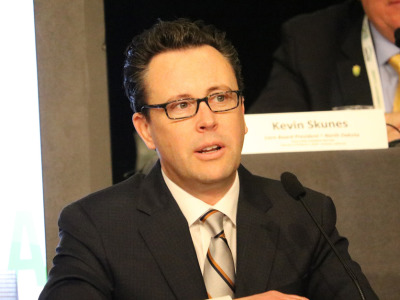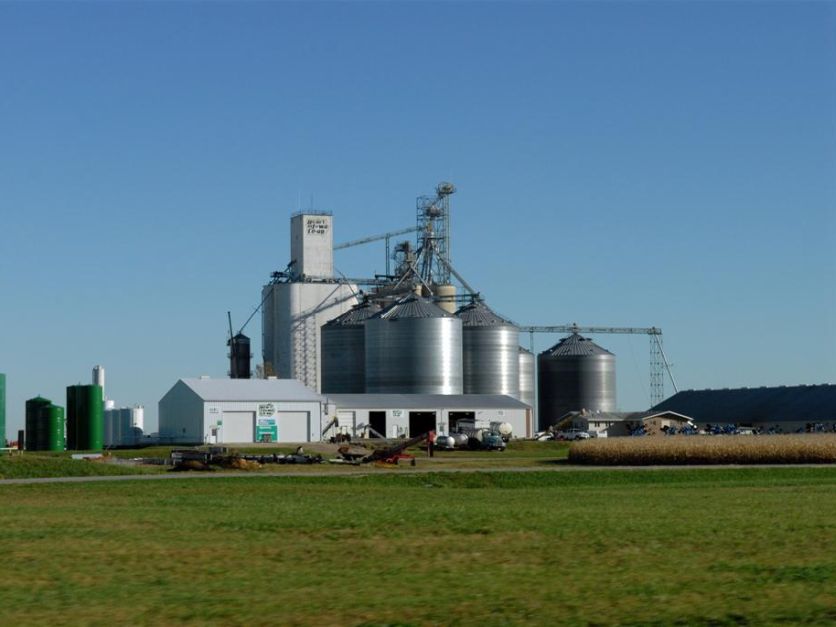Ethanol, corn, and biodiesel groups worry the Environmental Protection Agency will punt finalizing blending targets for the Renewable Fuel Standard to the new administration, which could delay action in a year of massive uncertainty.
By law, the EPA is supposed to finalize renewable volume obligations (RVOs) by Nov. 30 each year. These statutory levels signal to biofuel and fossil fuel companies how much biofuel to blend into the nation’s fuel supply for the coming year.
But EPA Administrator Andrew Wheeler has already suggested the agency likely will not meet the deadline of setting 2021 biofuel RVOs, citing the pandemic as a reason for the delay. Normally, EPA would have issued proposals in the summer and would be releasing finalized volumes any day now.
EPA did not respond to a request for comment.
Brian Jennings, CEO of the American Coalition for Ethanol, hopes EPA will release volume requirements next month, but noted there’s speculation the agency would punt them to the Biden administration.
“This would be the first time since ... 2015 that we will be going into a year without the potential knowledge of what our renewable volume obligation is going to be,” he said.
Jennings is afraid waiting to release the volumes until the Biden administration takes control will delay action by months. He said a common practice by a new administration is putting a freeze on all agency rulemaking made in the final months of the previous administration.
“We could be looking May (or) June of 2021 before we know what the 2021 volumes are, and I think that is recipe for disaster,” Jennings said.

Brian Jennings, American Coalition for Ethanol
He said that creates angst for producers who have already seen the marketplace erode. “It’s really uncertainty on steroids,” pointing to biofuel production being lower than last year due to the coronavirus and far less fuel consumption.
Jennings gave the Trump administration credit for meeting the statutory deadlines each year until now but said delays on releasing RVOs, which happened under the Obama administration, are not something the industry wants to go back to.
According to Energy Information Administration data analyzed by the Renewable Fuels Association, weekly ethanol production dropped by 1.5% to 40.4 million gallons daily for the week ending Nov. 13. Production stayed 6.9% below the same week compared to 2019.
“This is something Congress put into the law, that EPA is willfully ignoring this year and that could create some problems,” RFA President and CEO Geoff Cooper told Agri-Pulse.
“If you don’t have any idea what the volume requirements are going to be, it’s really hard to plan for next year,” he said. Cooper also noted delaying action exposes EPA to a “tremendous legal risk” by missing a statutory deadline.
Interested in more coverage and insights? Receive a free month of Agri-Pulse.
Growth Energy CEO Emily Skor pointed out the current administration not only has to act on volumes, but small refinery exemption petitions as well. Refiners who claim meeting blending requirements in the RFS may cause them financial harm may request an exemption from the EPA.
“What Administrator Wheeler has said for the past months is, they are not going to make decisions on pending SREs until they see the appeals process run its course on this 10th Circuit litigation, so it's hard to know the timetable on that,” Skor told Agri-Pulse, referring to when EPA could act on that issue.
Refiner groups are challenging a 10th Circuit Court of Appeals decision in the Supreme Court. The ruling by the Appeals Court in January stated that EPA cannot “extend” exemptions to any small refineries whose earlier, temporary exemptions had lapsed.

Emily Skor, Growth Energy
As of Friday, EPA has yet to decide on 59 pending small refinery exemption requests for compliance years 2011-2020.
If the small refinery exemptions end up being decided by a Biden administration, Jon Doggett, CEO of the National Corn Growers Association, does not feel Biden would grant as many as the Trump administration.
He said the Obama administration, in which Biden served as vice president, granted short of 400 million gallons over eight years. “That’s a tenth of what the Trump administration did (and) I don’t see a wholesale reduction in the requirement,” Doggett told Agri-Pulse.
Kurt Kovarik, vice president of federal affairs for the National Biodiesel Board, said biomass-based diesel volumes are supposed to be set 14 months in advance, as required in the RFS, to provide the signal to the biodiesel industry to further build out production for the market the RVOs set.
"It's terribly disappointing and harmful to our industry to not have that level of certainty the statute intended (and) we'll work diligently with the incoming team that President-elect Biden chooses and we hope we'll have higher volumes," he told Agri-Pulse.
These groups on Monday also filed a motion in the U.S. Court of Appeals in the District of Columbia. They want the court to enforce its 2017 decision requiring EPA to address its waiver of 500 million gallons of biofuel demand in the 2016 RVO. In the case, Americans for Clean Energy et al. v. EPA et al., the court noted EPA improperly waived 500 million gallons in the 2016 RVO and ordered EPA to revisit the rule. The agency has yet to do so.
For more news, go to www.Agri-Pulse.com.


